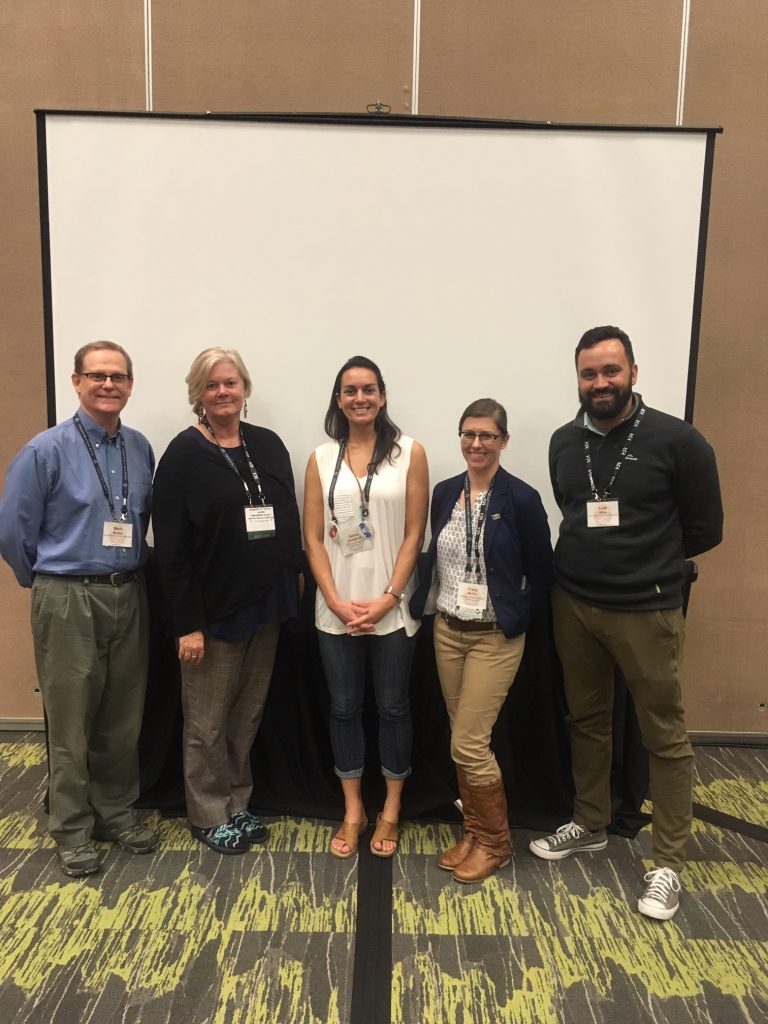2021 Annual meeting – Baltimore
Planning for Coldwater Fisheries Resources: Modeling and Managing Temperature Impairments
Organizers: Paul Kusnierz and Jonathan Leiman. Cosponsored by Water Quality and Habitat Sections
Water quality impairments come from a variety of pollutants and can impact the ability of fisheries to persist as defined by the Clean Water Act. Thermal impairments are particularly detrimental to coldwater fisheries and are increasingly challenging for state environmental and natural resource agencies to manage. Thermal impairments are often caused by human driven alterations of hydrologic regimes by the expansion of impervious surfaces, agricultural production, and riparian deforestation. Through addressing thermal impairments there is an expanding body of theoretical and applied scientific knowledge that can help water resource managers support coldwater resources and maintain fish thermal guilds. Current research efforts include modeling stream temperature, developing total maximum daily loads, evaluating cost-effective solutions, and assessing future climate scenarios. Challenges to addressing thermal impairments include jurisdictional differences in water quality standards, communicating analysis results and restoration needs, and addressing the pervasive effects of climate change. This symposium will provide a forum for water resource managers and practitioners to share technical information on how to restore and safe-guard coldwater resources, discuss challenges associated with working with multiple entities to improve temperature conditions, and consider techniques for communicating implementation needs to constituents.

2019 Annual meeting – Reno
Wildlife, and Humans Adapt to Shifts in Wildfire Disturbance?
Session organizers (left to right): Mark Bowen, Henriette Jager, Serra Hoagland, Tracy Melvin, Luiz Silva. Jeff Thomas (not shown)
Two Sections of the American Fisheries Society and three Working Groups of The Wildlife Society organized this two-day symposium. Presentations explored the responses of bats and other mammals, birds, aquatic insects, and fishes to wildfire, mediated by changes in vegetation structure, air and water quality. We learned that wildfire disturbance is complex and controversial. In the short term, wildfires change water and air quality, threaten fish and wildlife, and destroy human infrastructure. Yet long-term consequences may be positive where ecosystems are adapted to historical fire regimes. Two themes emerged from the research presented. First, moderate wildfires had short-term adverse effects, but stimulated higher diversity and productivity through creating gaps in the forest canopy for a decade before growing back and returning to pre-fire conditions.
Second, wildfire-adapted cosystems are not always resilient to climate-induced shifts in wildfire, as illustrated by two examples. 1) The successional shift from California forest to chaparral caused by repeated, high-intensity burns would harm forest-adapted bat species. 2) Rare fishes in isolated New Mexico tributaries were extirpated following catastrophic wildfires and monsoon flooding. Studies that compared sites that previously experienced high-intensity and low-intensity burns found that significant long- term responses tended to be negative responses to high-intensity wildfires.
